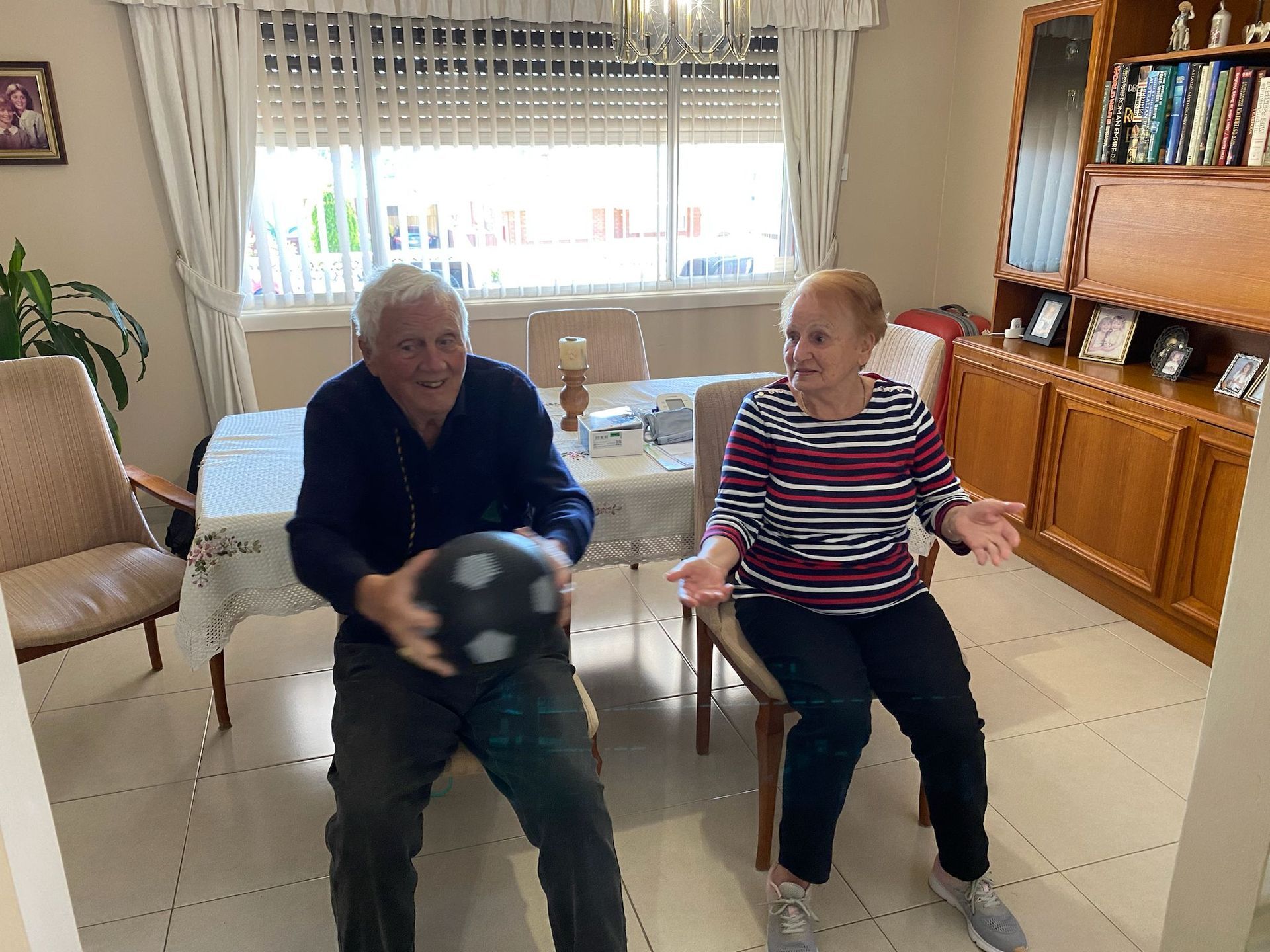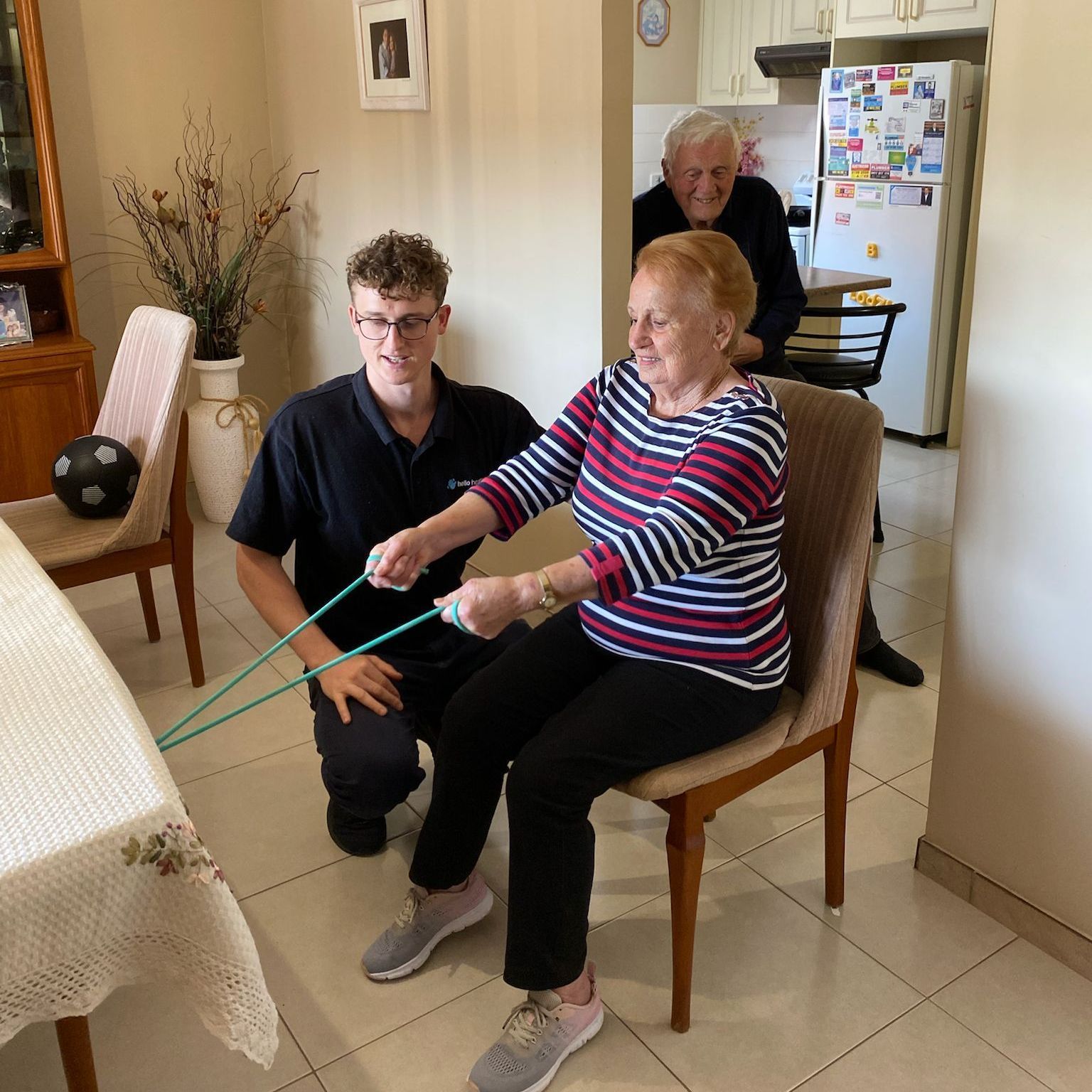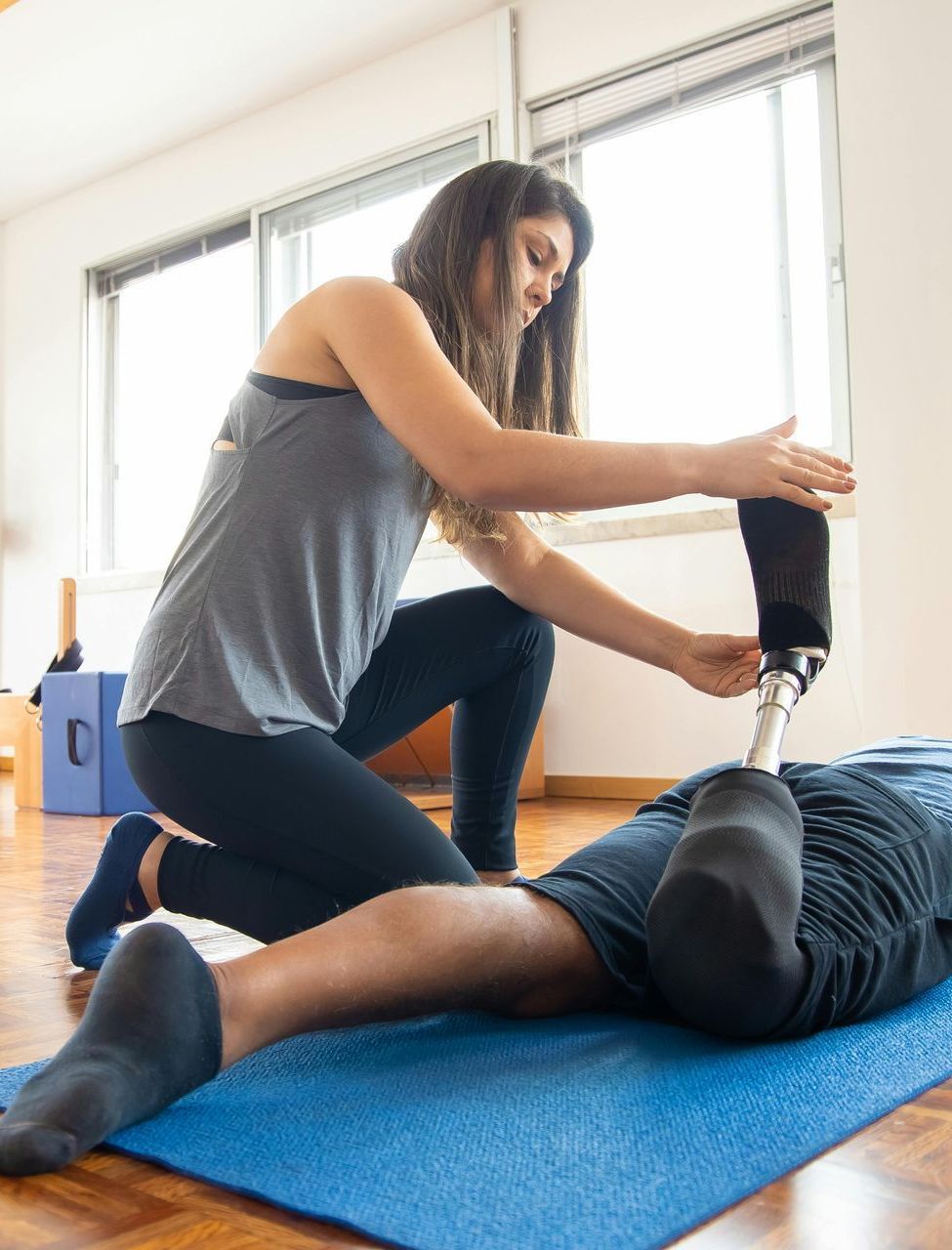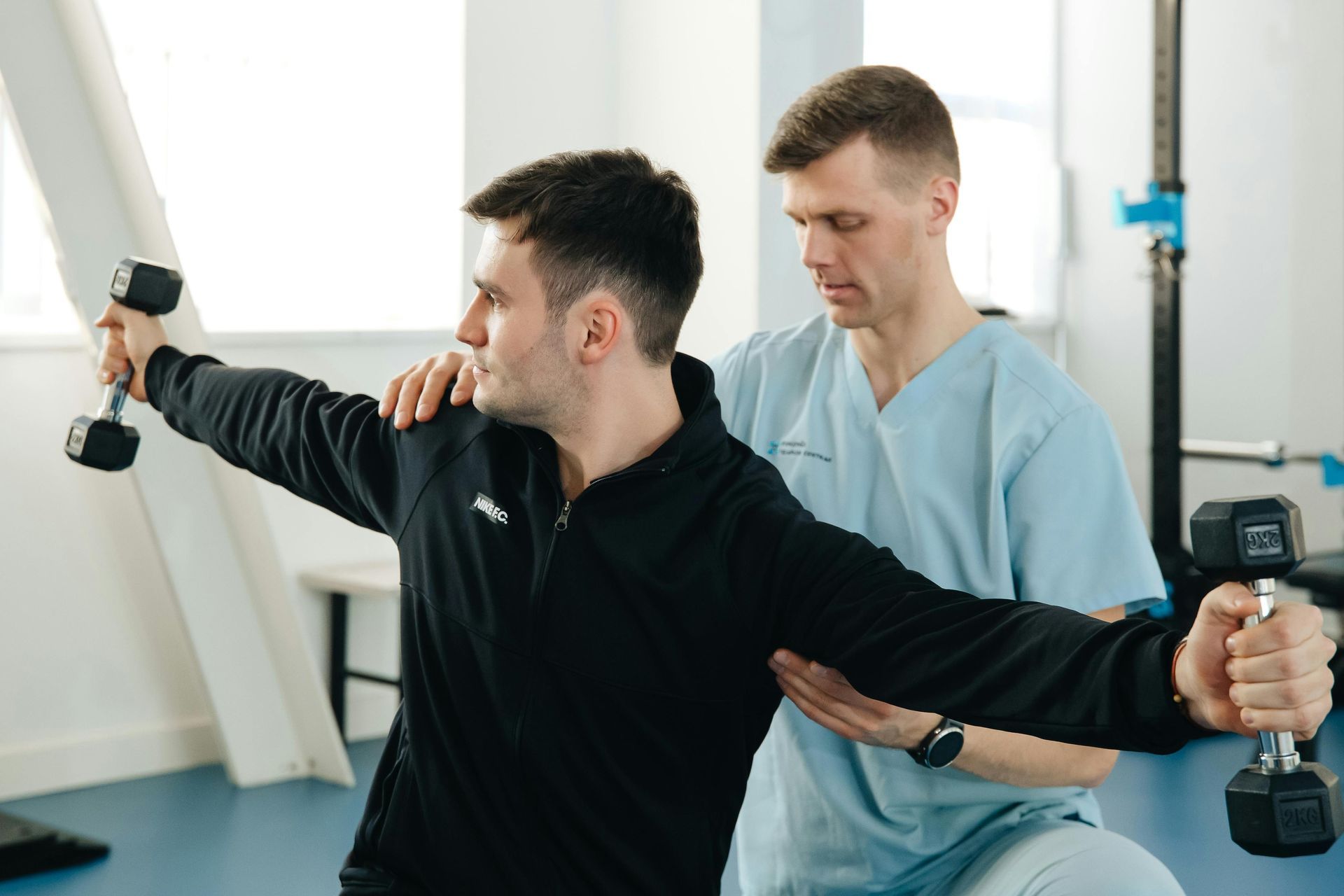Disability & NDIS Support
Living with a disability should never mean you have to miss out. Home-based physiotherapy helps you stay active, manage daily activities, and enjoy life.
The focus is always on what works for you, whether that means improving balance, boosting mobility, or building confidence.
With step-by-step support at home, you can reach your goals in a familiar space.
Support That Fits Your Needs
Each physiotherapy plan is made to fit your needs.
The goal is to create a space where you can work on your goals at your own pace.
For example, if balance is something you need to work on, sessions will include simple balance exercises.
You might practice standing with support from a chair or shifting your weight from one foot to the other. These small activities help improve balance and reduce the risk of falls.
Physiotherapy can also focus on gentle movements that keep you steady. Tools like stability cushions or handrails make it easier to practice exercises safely.
Activities like seated leg lifts or standing with light support help you build control and confidence over time.


Mental Disabilities:
Depression, Anxiety, and Schizophrenia
Physiotherapy offers gentle ways to build routine and confidence for mental health challenges.
Structured activities like walking in place or seated arm lifts ease tension and improve well-being.
For schizophrenia, steady routines with calming exercises reduce stress and build strength.
Step-by-step activities like guided stretches or rhythmic movements help you feel balanced and connected.

Intellectual Disabilities:
Autism Spectrum Disorder, Down Syndrome, and Developmental Delays
Physiotherapy for intellectual disabilities creates engaging and practical routines.
Guided stretching, balance exercises, and playful activities like tossing a ball improve coordination and strength.
For developmental delays, walking practice and light resistance exercises build confidence and independence.
For those on the Autism spectrum, sensory-friendly approaches and clear instructions create a supportive environment.
Activities focus on improving motor skills, posture, and flexibility while fitting your unique needs and goals.

Neurological Disabilities:
Cerebral Palsy, Stroke, Parkinson’s Disease, Multiple Sclerosis, and Spinal Cord Injuries
Physiotherapy provides practical steps to support mobility and balance.
For cerebral palsy, strength exercises help with walking and standing.
Stroke recovery includes guided hand and leg movements to improve function.
For Parkinson’s and multiple sclerosis, gentle balance and stretching exercises improve posture and stability.
Spinal cord injury sessions may include assisted leg movements or practising transfers to encourage independence.
Fun Strengthening Activities at Home
Exercises don’t have to feel like a chore. Home-based physiotherapy makes movement fun.
You might dance to your favourite music or do seated exercises that make you smile.
These activities are designed to fit into your day, helping you stay consistent while enjoying the process.
Having a regular routine can help a lot.
Sessions focus on positive goals and simple routines.
For example, starting each day with gentle stretches can set a positive tone.
Physical activity also helps lift your mood, giving you more energy and confidence.
Everyday Movement for Confidence
Physiotherapy helps you take on daily tasks with ease.
Simple activities like standing up from a chair, walking steadily, or reaching for items become easier with practice.
If reaching is hard, exercises that focus on your shoulders and arms can help over time. Each step is about feeling capable and confident at home.
The goal is to help you feel confident in daily activities, it’s about walking to the kitchen, standing up, or enjoying a hobby.
Each exercise is chosen to fit your needs, making it easier to stay active and independent.
NDIS Support at Home
NDIS-funded physiotherapy supports many needs, helping you stay active and connected.
Helpful support is available for anyone living with a disability, and sessions are designed to fit your life. Physiotherapy plans are flexible to fit what you need.
The focus is on your goals, like improving balance, staying active, or gaining more independence. With regular support, you can build strength, work on flexibility, and stay involved in what matters to you.
Your physiotherapist will make each session comfortable, with exercises that are practical and fit your day-to-day life.

